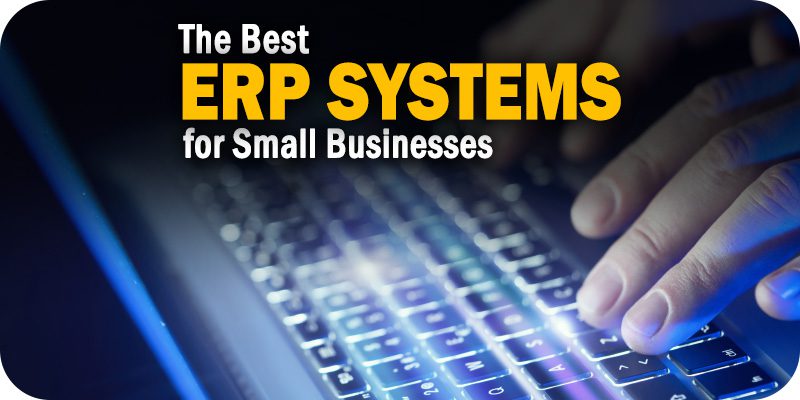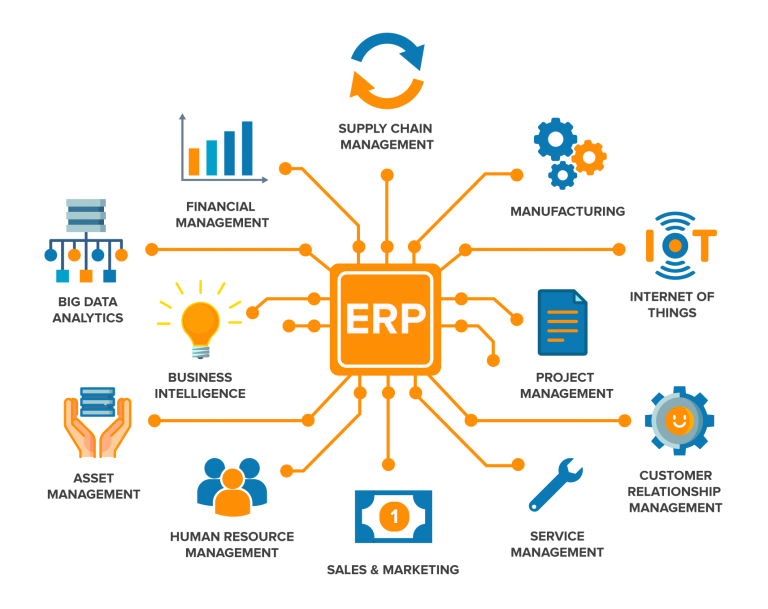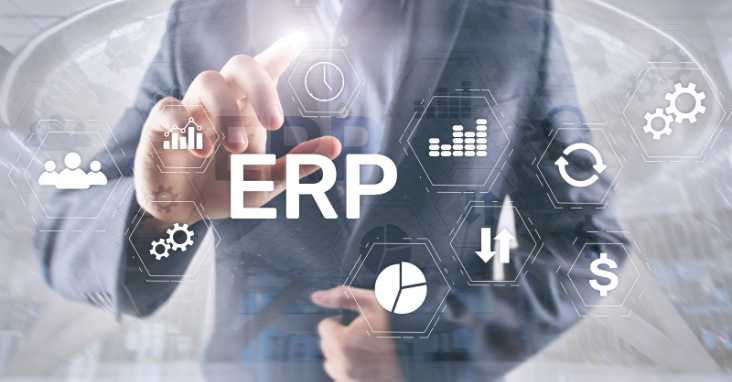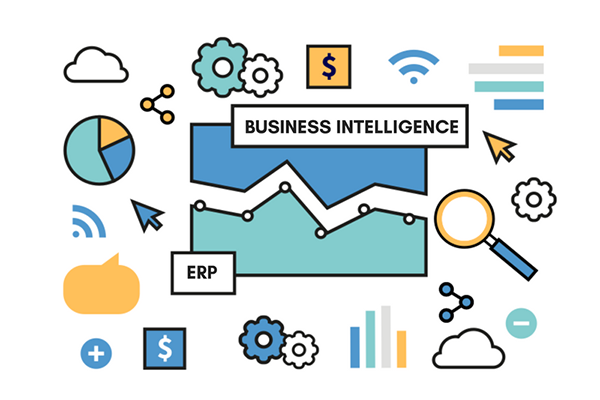Unlocking Growth: How ERP Systems Empower Small Businesses to Thrive
 .
.
Greetings, fellow entrepreneurs! In the dynamic landscape of the modern business world, where competition is fierce and efficiency is paramount, small businesses are constantly seeking ways to optimize their operations and maximize their potential. This quest for growth and streamlined processes often leads them to explore the world of Enterprise Resource Planning (ERP) systems.
But what exactly are ERP systems, and how can they benefit your small business? Let’s delve into the intricate workings of ERP systems and uncover their transformative power in driving your business towards success.
At its core, an ERP system is a comprehensive software solution designed to integrate and manage all aspects of your business operations. From finance and accounting to inventory management and customer relationship management (CRM), ERP systems act as a central hub, bringing together disparate data and processes into a unified platform. This integration fosters seamless communication and collaboration across departments, eliminating silos and promoting a holistic view of your business.
Imagine a scenario where your sales team is unaware of the current inventory levels, leading to overselling or missed opportunities. An ERP system eliminates this disconnect by providing real-time insights into inventory levels, enabling your sales team to make informed decisions and avoid stockouts. This is just one example of how ERP systems empower businesses to operate with greater efficiency and accuracy.
 .
.
But the benefits of ERP systems extend far beyond mere data integration. They also offer powerful tools for analyzing business performance, identifying areas for improvement, and making data-driven decisions. By consolidating data from various sources, ERP systems provide a comprehensive picture of your business’s health, allowing you to track key metrics, identify trends, and make strategic adjustments to optimize your operations.
Furthermore, ERP systems streamline your business processes, automating repetitive tasks and freeing up your valuable time and resources. This automation not only improves efficiency but also reduces the risk of human error, ensuring greater accuracy and consistency in your operations.
For small businesses, the adoption of ERP systems can be a game-changer, providing them with the tools and insights they need to compete with larger enterprises. ERP systems level the playing field, empowering small businesses to operate with the same level of sophistication and efficiency as their larger counterparts.
Navigating the ERP Landscape: Choosing the Right System for Your Business
Choosing the right ERP system for your small business is a crucial decision that requires careful consideration. The market is brimming with a wide array of ERP solutions, each tailored to specific industry needs and business sizes. It’s essential to navigate this complex landscape and select a system that perfectly aligns with your unique requirements.
Defining Your Needs: Understanding Your Business’s Specific Requirements
 .
.
Before embarking on your ERP system search, take a deep dive into your business’s current operations and identify your key pain points. What are the areas where you need improvement? What processes are inefficient or prone to errors? Answering these questions will provide a clear understanding of your specific requirements and help you narrow down your search to ERP systems that address your unique needs.
Industry-Specific Solutions: Tailored Systems for Specialized Businesses
The ERP market offers a wide range of industry-specific solutions designed to cater to the unique needs of different sectors. For example, manufacturing businesses may require ERP systems with advanced inventory management capabilities, while retail businesses may prioritize point-of-sale (POS) integration and customer relationship management (CRM) features. Researching industry-specific ERP solutions can save you time and effort by ensuring that the system you choose is perfectly equipped to handle the complexities of your industry.
Scalability and Growth: Choosing a System that Can Grow with Your Business
As your business grows, your ERP system should be able to scale alongside it. Select a system with the flexibility to accommodate your expanding needs without requiring a complete overhaul. Consider factors like the number of users, data storage capacity, and integration capabilities when evaluating the scalability of different ERP systems.
 .
.
Cost-Effectiveness: Balancing Functionality and Budgetary Constraints
ERP systems come in a variety of price points, ranging from affordable cloud-based solutions to more expensive on-premise systems. It’s essential to balance functionality with budgetary constraints and choose a system that provides the features you need without breaking the bank. Explore different pricing models, such as subscription-based or one-time purchase options, and compare the cost of ownership for each system.
Implementation and Support: Choosing a System with a Smooth Implementation Process
The implementation of an ERP system can be a complex and time-consuming process. Choose a system with a user-friendly interface and comprehensive documentation to streamline the implementation process. Consider the availability of training and support resources, and ensure that the vendor provides ongoing assistance to address any issues or questions that may arise.
Unveiling the Power of ERP Systems: Advantages for Small Businesses
 .
.
ERP systems offer a plethora of advantages for small businesses, empowering them to streamline operations, enhance efficiency, and unlock new growth opportunities. Let’s explore some of the key benefits that ERP systems bring to the table:
Enhanced Efficiency: Streamlining Processes and Reducing Manual Work
One of the most significant advantages of ERP systems is their ability to streamline business processes and reduce manual work. By automating repetitive tasks, such as data entry and order processing, ERP systems free up your valuable time and resources, allowing you to focus on more strategic initiatives. This automation also reduces the risk of human error, ensuring greater accuracy and consistency in your operations.
Improved Visibility and Control: Gaining Real-Time Insights into Business Performance
ERP systems provide real-time visibility into all aspects of your business operations, giving you a comprehensive picture of your company’s performance. You can track key metrics, identify trends, and make data-driven decisions to optimize your operations. This enhanced visibility and control empower you to make informed decisions and proactively address potential challenges.

Centralized Data Management: Eliminating Data Silos and Fostering Collaboration
ERP systems act as a central repository for all your business data, eliminating data silos and fostering seamless communication and collaboration across departments. This centralized data management allows you to access information from different sources in a unified platform, providing a holistic view of your business. This integrated approach eliminates the need for manual data reconciliation, saving time and reducing the risk of errors.
Enhanced Customer Relationship Management (CRM): Building Stronger Customer Relationships
ERP systems often include CRM features that empower you to manage customer interactions, track sales opportunities, and provide personalized customer service. By integrating CRM into your ERP system, you can gain a deeper understanding of your customers’ needs and preferences, allowing you to tailor your marketing efforts and provide a more personalized customer experience.
Improved Financial Management: Gaining Control Over Finances and Optimizing Cash Flow
ERP systems offer powerful financial management tools that can help you streamline your accounting processes, track expenses, and manage cash flow. With real-time access to financial data, you can make informed financial decisions, optimize your resources, and ensure the long-term financial health of your business.
Navigating the Challenges: Disadvantages of ERP Systems for Small Businesses
While ERP systems offer numerous advantages, it’s essential to acknowledge that they also come with certain challenges that small businesses need to be aware of. Let’s explore some of the potential drawbacks of implementing an ERP system:
Implementation Costs: The Initial Investment and Ongoing Maintenance
Implementing an ERP system can be a significant investment, both in terms of initial setup costs and ongoing maintenance expenses. You need to consider the cost of software licenses, hardware upgrades, training, and ongoing support. Small businesses with limited budgets may find it challenging to justify the upfront investment in an ERP system.
Complexity and Learning Curve: The Time and Effort Required for Adoption
ERP systems can be complex, and it may take time for your employees to learn and adapt to the new system. This learning curve can lead to initial productivity losses and require significant training and support. Small businesses with limited resources may struggle to dedicate the time and effort required for successful implementation and adoption.
Customization and Integration: Tailoring the System to Your Unique Needs
While many ERP systems offer customizable features, tailoring them to your specific business needs can be time-consuming and expensive. You may need to invest in custom development or integration services to ensure that the system perfectly aligns with your unique processes and workflows.
Data Security and Privacy: Protecting Sensitive Information
ERP systems store sensitive business data, making data security and privacy a critical concern. You need to ensure that the chosen ERP system has robust security measures in place to protect your data from unauthorized access, breaches, and cyber threats. Small businesses with limited IT expertise may struggle to manage data security effectively.
Vendor Lock-In: The Potential for Dependency on a Specific Provider
Choosing an ERP system can lead to vendor lock-in, meaning that you may become dependent on a specific provider for ongoing support and upgrades. This dependence can limit your flexibility and make it challenging to switch to a different system in the future.
A Comprehensive Guide to ERP Systems for Small Businesses
To provide a comprehensive understanding of ERP systems for small businesses, let’s summarize the key information discussed so far:
What is an ERP system?
An ERP system is a comprehensive software solution designed to integrate and manage all aspects of your business operations, from finance and accounting to inventory management and customer relationship management (CRM).
Why are ERP systems beneficial for small businesses?
ERP systems empower small businesses to streamline operations, enhance efficiency, gain real-time visibility into business performance, centralize data management, improve customer relationships, and optimize financial management.
What are the key considerations when choosing an ERP system?
When choosing an ERP system, consider your business’s specific requirements, industry-specific solutions, scalability, cost-effectiveness, implementation and support, and data security and privacy.
What are the advantages of implementing an ERP system?
The advantages of implementing an ERP system include enhanced efficiency, improved visibility and control, centralized data management, enhanced customer relationship management, and improved financial management.
What are the disadvantages of implementing an ERP system?
The disadvantages of implementing an ERP system include implementation costs, complexity and learning curve, customization and integration, data security and privacy, and vendor lock-in.
FAQs: Addressing Common Questions About ERP Systems
To further clarify your understanding of ERP systems, let’s address some frequently asked questions:
1. What are the different types of ERP systems available for small businesses?
ERP systems are available in various forms, including on-premise, cloud-based, and hybrid solutions. On-premise systems are installed and maintained on your company’s servers, while cloud-based systems are hosted on external servers and accessed through the internet. Hybrid systems combine elements of both on-premise and cloud-based solutions.
2. How much does an ERP system cost for a small business?
The cost of an ERP system varies depending on the size of your business, the features you require, and the chosen vendor. Cloud-based systems generally have lower upfront costs but may involve recurring subscription fees. On-premise systems typically have higher initial investment costs but may offer lower long-term expenses.
3. How long does it take to implement an ERP system?
The implementation timeline for an ERP system can vary depending on the complexity of the system, the size of your business, and the chosen vendor. It can take anywhere from a few months to a year or more to fully implement an ERP system.
4. What are the key features of a good ERP system for a small business?
A good ERP system for a small business should offer features such as inventory management, order processing, financial accounting, customer relationship management (CRM), and reporting and analytics. It should also be scalable, customizable, and secure.
5. What are the best ERP systems for small businesses?
There are many reputable ERP systems available for small businesses, including NetSuite, QuickBooks Enterprise, SAP Business One, and Microsoft Dynamics 365 Business Central. The best system for your business will depend on your specific needs and budget.
6. What are the benefits of using a cloud-based ERP system?
Cloud-based ERP systems offer several benefits, including lower upfront costs, scalability, accessibility from anywhere with an internet connection, and regular updates.
7. How can I choose the right ERP vendor for my business?
When choosing an ERP vendor, consider factors such as their experience, industry expertise, customer support, pricing, and implementation process. It’s also important to read customer reviews and testimonials to get a sense of the vendor’s reputation.
8. What are the key challenges of implementing an ERP system?
The key challenges of implementing an ERP system include the initial investment costs, the complexity of the system, the need for customization, data security and privacy concerns, and the potential for vendor lock-in.
9. How can I mitigate the risks associated with implementing an ERP system?
To mitigate the risks associated with implementing an ERP system, carefully choose your vendor, invest in adequate training and support, develop a comprehensive implementation plan, and ensure that your data is secure.
10. What are the best practices for using an ERP system?
Best practices for using an ERP system include regular data entry, accurate information, consistent use, and regular training for employees. It’s also important to stay up-to-date with system updates and security patches.
11. How can I measure the success of my ERP implementation?
You can measure the success of your ERP implementation by tracking key metrics such as improved efficiency, reduced errors, increased sales, and better customer satisfaction.
12. What are the future trends in ERP systems?
Future trends in ERP systems include the increasing adoption of cloud-based solutions, the integration of artificial intelligence (AI) and machine learning (ML), and the focus on data analytics and business intelligence.
13. What are the best resources for learning more about ERP systems?
There are many resources available for learning more about ERP systems, including industry publications, online forums, vendor websites, and professional associations.
Taking the Leap: Embracing the Transformative Power of ERP Systems
As you’ve delved into the world of ERP systems, you’ve discovered their immense potential to transform your small business. Now, it’s time to take the leap and embrace the transformative power of these innovative solutions.
Don’t let the initial investment or the complexity of implementation deter you. The benefits of an ERP system far outweigh the challenges, and the long-term rewards are substantial. By carefully selecting the right system, investing in adequate training and support, and embracing a strategic approach to implementation, you can unlock a world of efficiency, growth, and success for your small business.
Imagine the possibilities! You can streamline your operations, enhance your customer relationships, gain real-time insights into your business performance, and make data-driven decisions that propel your company towards its full potential. With an ERP system by your side, you can compete with larger enterprises, navigate the complexities of the modern business landscape, and achieve your ambitious goals.
Don’t wait any longer! Take the first step towards a more efficient, profitable, and successful future for your small business. Explore the world of ERP systems, find the perfect solution for your unique needs, and embark on a journey of growth and transformation.
Disclaimer: This article provides general information about ERP systems and is not intended to be a substitute for professional advice. The specific requirements and challenges of each business are unique, and it’s essential to consult with industry experts and conduct thorough research before making any decisions about implementing an ERP system.
 .
.
